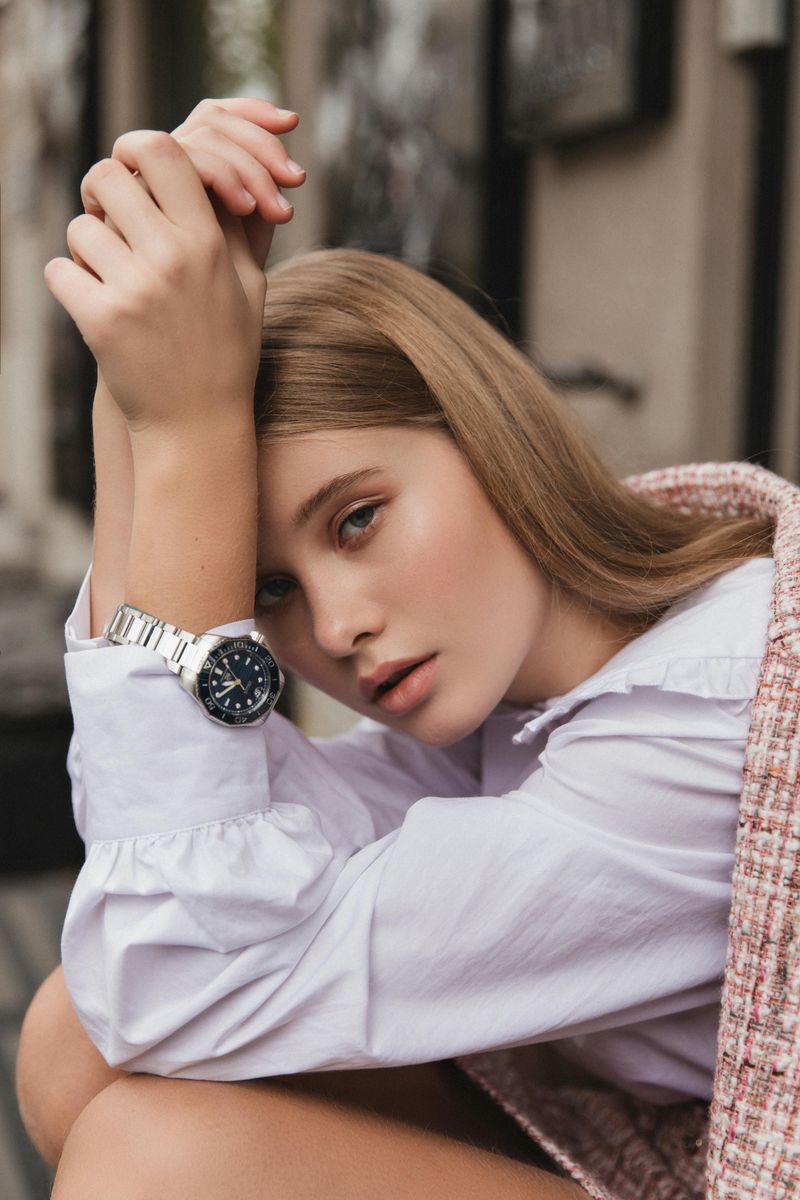True elegance isn’t about designer labels or flashy accessories. Sometimes, the most refined individuals blend seamlessly into a crowd, wearing jeans and sneakers just like everyone else. Yet something about their presence, their manners, and the way they carry themselves quietly signals a privileged upbringing and sophisticated lifestyle that no amount of casual clothing can hide.
1. Effortless Confidence (Without Arrogance)

Confidence shows up differently depending on who’s wearing it. For those raised with privilege, it appears as a calm, steady presence that never needs to shout or prove itself. They stand tall without stiffness, make eye contact without staring someone down, and speak their mind without steamrolling others in conversation.
This kind of assurance comes from years of being told their voice matters. Their upbringing taught them they belong in any room, so they never feel the urge to dominate discussions or interrupt others. Instead, they listen actively and contribute thoughtfully.
What sets them apart is the absence of insecurity or the need for constant validation. Their confidence feels comfortable, like a well-worn jacket, not a costume they’re trying on for size.
2. Polished Manners and Etiquette

Watch how someone treats the person serving their coffee, and you’ll learn volumes about their character. Upper-class individuals extend the same courtesy to everyone they encounter, regardless of job title or social status. Their “please” and “thank you” flow naturally, not as rehearsed politeness but as genuine respect.
These manners weren’t learned from a book last week. They were instilled from childhood, reinforced at every family dinner and social gathering until they became second nature. There’s no switching between formal and casual modes—kindness is their default setting.
The waiter, the janitor, and the CEO all receive the same warmth and consideration. This consistency reveals a worldview shaped by security and privilege, where treating others well costs nothing and reflects personal values rather than strategic networking.
3. Controlled and Measured Speech

“Um,” “like,” and “you know” rarely pepper their sentences. Instead, their words flow with deliberate clarity, each thought fully formed before leaving their lips. This isn’t about sounding robotic or overly formal—it’s about communicating with intention and precision.
Quality education plays a role here, but so does environment. Growing up around articulate adults who valued meaningful conversation creates a linguistic foundation that casual settings can’t disguise. Their vocabulary feels natural, not forced or designed to impress.
Even when discussing everyday topics, their speech patterns reveal years of practice expressing complex ideas clearly. They pause to think rather than filling silence with meaningless sounds. This measured approach to communication signals both education and self-awareness that comes from privilege.
4. Understated Body Language

Fidgeting, slouching, and wild hand gestures are noticeably absent from their physical vocabulary. Every movement carries a certain economy—nothing excessive, nothing rushed. They sit comfortably without collapsing into furniture, and their hands rest naturally rather than drumming nervously on tables.
This composed physicality wasn’t learned from a YouTube video on body language. Years of etiquette training, dance lessons, or simply observing poised family members created these graceful habits. Their comfort in their own skin shows through every gesture.
Even in stressful moments, their body language remains controlled. No anxious tapping, no defensive crossed arms, no aggressive posturing. This physical composure reflects an inner calm that comes from facing life’s challenges with resources and support that soften most blows.
5. Subtle Display of Wealth

Forget giant logos and trendy pieces that scream for attention. True wealth whispers through fabric quality, perfect tailoring, and timeless design choices that never go out of style. Their casual outfit might look simple at first glance, but closer inspection reveals the difference between ordinary and extraordinary.
That plain white t-shirt drapes differently because it’s made from superior cotton and cut by skilled hands. Their worn-in jeans fit flawlessly because they were tailored to their exact measurements. Even their sneakers, while understated, come from heritage brands known for craftsmanship rather than hype.
A single, discreet accessory—perhaps a classic watch or subtle jewelry—completes the look without overwhelming it. They understand that true elegance requires restraint, and their refined taste speaks louder than any flashy display ever could.
6. Cultural Awareness and Knowledge

Mention a recent museum exhibition, a classic novel, or current international affairs, and they engage effortlessly. Their knowledge spans continents and centuries, reflecting exposure to diverse experiences that money and privilege provide. Yet they share this information conversationally, never to show off or make others feel small.
Travel shaped their worldview—not tourist snapshots, but meaningful immersion in different cultures. Private schools emphasized literature and arts alongside standard subjects. Family discussions around the dinner table covered topics beyond celebrity gossip and sports scores.
What makes their cultural literacy distinctive is its authenticity. They genuinely care about these subjects and enjoy exploring them, rather than memorizing facts to appear sophisticated. This natural curiosity and broad perspective reveal an upbringing rich in educational opportunities most people never access.
7. Excellent Listening Skills

Conversation with them feels different somehow. They’re not mentally preparing their next comment while you’re still speaking. Instead, they maintain steady eye contact, nod at appropriate moments, and ask follow-up questions that prove they actually heard what you said.
This attentive listening stems from security and good manners combined. They don’t need to constantly prove themselves or dominate discussions because their worth was never questioned growing up. Their social training emphasized making others comfortable rather than hogging the spotlight.
When you finish speaking, they pause before responding—actually considering your words rather than launching into a pre-planned monologue. This respectful engagement makes people feel valued and heard, a rare gift in our distracted, self-focused world. Their listening skills reveal breeding and consideration that casual clothes can’t disguise.
8. Calmness Under Pressure

Crisis reveals character, and their response to stress stands out immediately. While others panic, complain, or visibly crumble, they remain remarkably composed. Their breathing stays even, their voice maintains its steady tone, and their decision-making doesn’t deteriorate into reactive chaos.
This unshakeable calm reflects a lifetime of cushioned landings. Financial security, family support, and access to resources create confidence that problems can be solved. They’ve rarely faced truly desperate situations, so stress triggers problem-solving rather than panic.
Some might call this privilege showing, and they’d be right. But it also demonstrates emotional regulation and self-control developed through stable, supportive upbringings. Whether facing a delayed flight or a genuine emergency, their composure remains their most telling characteristic, quietly broadcasting their protected, privileged background.
9. Respect for Privacy and Discretion

Oversharing isn’t in their vocabulary. While others spill personal details to near-strangers or eagerly pass along juicy gossip, they maintain clear boundaries about what’s appropriate to discuss. Their restraint isn’t coldness—it’s refined understanding of social propriety and respect for privacy.
Old money families particularly value discretion, teaching children early that broadcasting personal business shows poor breeding. This creates adults who listen to others’ secrets without repeating them and who keep their own lives appropriately private, even in our oversharing culture.
Their conversation stays focused on ideas, experiences, and mutual interests rather than personal drama or financial details. This dignified reserve feels refreshing in a world where social media encourages constant revelation. Their discretion signals both self-respect and sophisticated social training that privilege typically provides.

Comments
Loading…